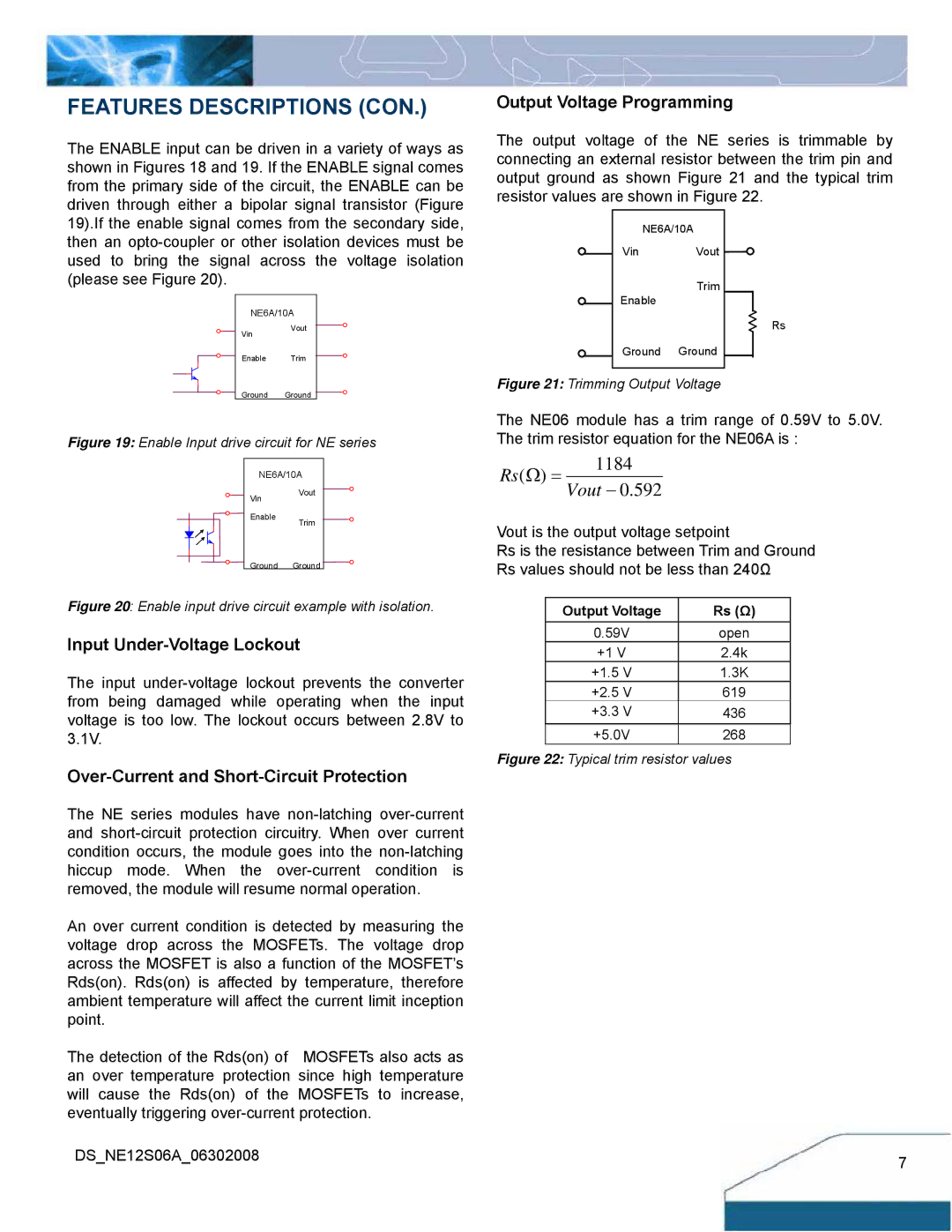
FEATURES DESCRIPTIONS (CON.)
The ENABLE input can be driven in a variety of ways as shown in Figures 18 and 19. If the ENABLE signal comes from the primary side of the circuit, the ENABLE can be driven through either a bipolar signal transistor (Figure 19).If the enable signal comes from the secondary side, then an
ND6A/10A
NE6A/10A
Output Voltage Programming
The output voltage of the NE series is trimmable by connecting an external resistor between the trim pin and output ground as shown Figure 21 and the typical trim resistor values are shown in Figure 22.
ND 6A/10A
NE6A/10
Vin Vout ![]()
Trim
Enable
Vin
Vout
Rs
Ground Ground
Enable Trim
Ground Ground
Figure 19: Enable Input drive circuit for NE series
NDNE6A/10A
Figure 21: Trimming Output Voltage
The NE06 module has a trim range of 0.59V to 5.0V. The trim resistor equation for the NE06A is :
Rs(Ω) = 1184
Vout 0.592
Vin Enable
Vout
Trim
−
Vout is the output voltage setpoint
Ground Ground ![]()
![]()
Figure 20: Enable input drive circuit example with isolation.
Input Under-Voltage Lockout
The input
Over-Current and Short-Circuit Protection
Rs is the resistance between Trim and Ground Rs values should not be less than 240Ω
Output Voltage | Rs (Ω) |
0.59V | open |
+1 V | 2.4k |
+1.5 V | 1.3K |
+2.5 V | 619 |
+3.3 V | 436 |
+5.0V | 268 |
Figure 22: Typical trim resistor values
The NE series modules have
An over current condition is detected by measuring the voltage drop across the MOSFETs. The voltage drop across the MOSFET is also a function of the MOSFET’s Rds(on). Rds(on) is affected by temperature, therefore ambient temperature will affect the current limit inception point.
The detection of the Rds(on) of MOSFETs also acts as an over temperature protection since high temperature will cause the Rds(on) of the MOSFETs to increase, eventually triggering
DS_NE12S06A_06302008 | 7 |
|
